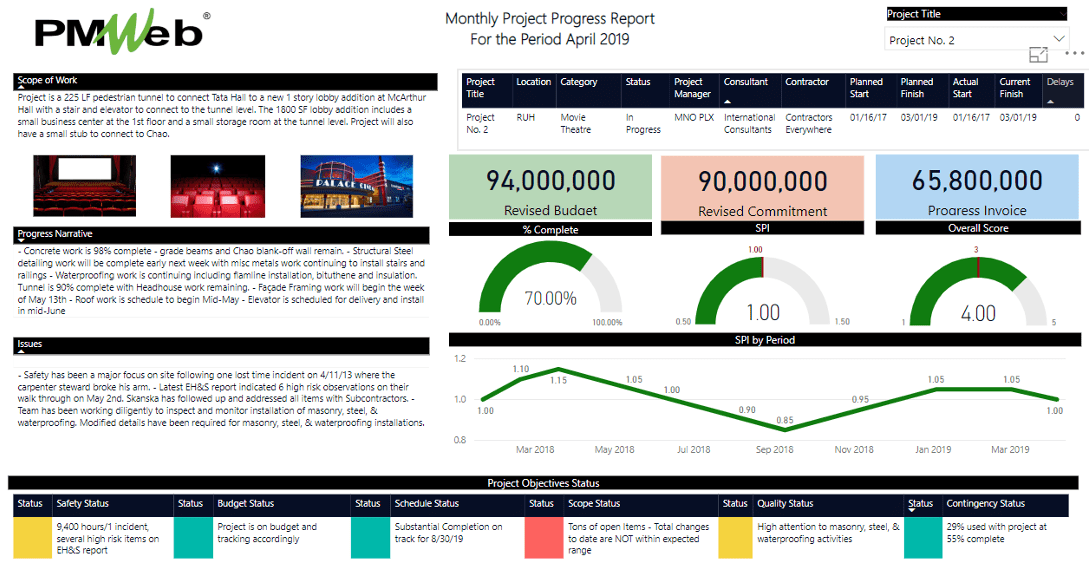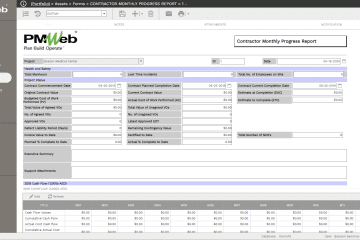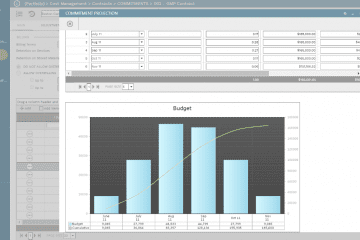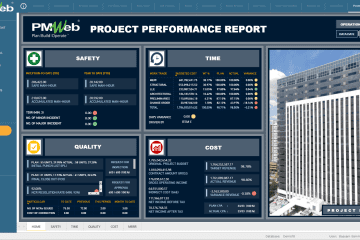More than ever, public sector project owners, like municipalities and ministries for public works, health, interior, education, water and electricity, housing, and defense, who have projects spread across different geographical locations within their country have the requirement to manage, monitor, evaluate and report their projects’ performance and status to senior executives within their ministries as well as country leadership. Therefore, and more than ever, those public sector entities are now setting their Project Management Offices (PMO) business units to become responsible for achieving this requirement. The PMO setup entails formalizing the implementation of project management best practices, automating project management processes, and enabling the project team to run the PMO. This eventually improves those organizations’ project delivery and enables them to have real-time monitoring, evaluation, and reporting of their projects’ portfolio performance.
Nevertheless, the time needed to define the PMO requirements and then procure and award the services to design and launch the PMO, as well as enable their resources to run the PMO, might take more time than what those organizations can afford not having a solution to monitor, evaluate and report their current projects’ performance and status. Therefore, they might need to consider a solution that can provide trustworthy, auditable, and meaningful information on their projects’ performance as well as the issues that could impact their projects’ success. They would need a solution that can be implemented in a considerably short time and can be easily used by their current project management team to report the much-needed projects’ performance.
A project management information system (PMIS) like PMWeb not only addresses the need for a solution that can be implemented quickly to address the immediate requirements of monitoring, evaluating, and reporting projects’ performance and status but also provides a complete solution to support the operation of the project management office (PMO) when it is ready to operate. For many organizations, fulfilling the immediate requirement of reporting can be viewed as phase one of the overall PMIS implementation.
Accordingly, the main objective of this first phase is to enable a real-time single version of the truth monitoring, evaluation, and reporting of the performance solution. The performance dashboard usually displays the zones, governments, or municipalities where projects are located at. The dashboard also provides a scorecard of projects’ performance as well as summary visuals of projects by status, type, sponsor, and other important attributes.
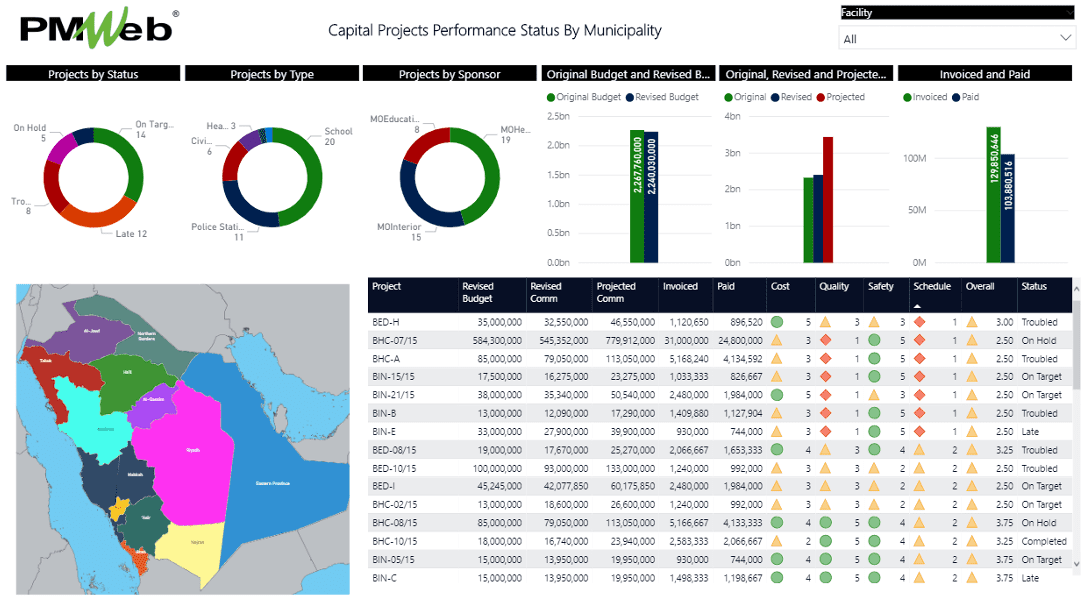
Requirement #1: Having Clarity on Who Are the Stakeholders and Entities That Have a Role in Projects Delivery
A key requirement for reporting projects’ performance is to have a directory that captures the latest contact details of all entities and stakeholders that could be involved in delivering the organization’s projects. Those include the project owner, project management consultants, engineering consultants, supervision consultants, general contractors, subcontractors, vendors, permitting authorities, and entities that are part of the HSE management plan such as fire stations, police, hospitals, and clinics.
PMWeb companies’ module has the latest details of all those entities regardless of whether those entities were part of the current project or not. For each entity, PMWeb allows capturing the head office address location as well as the address locations for all other branches and divisions, finance, quality, safety, and other departments details, and insurance and registration status details.
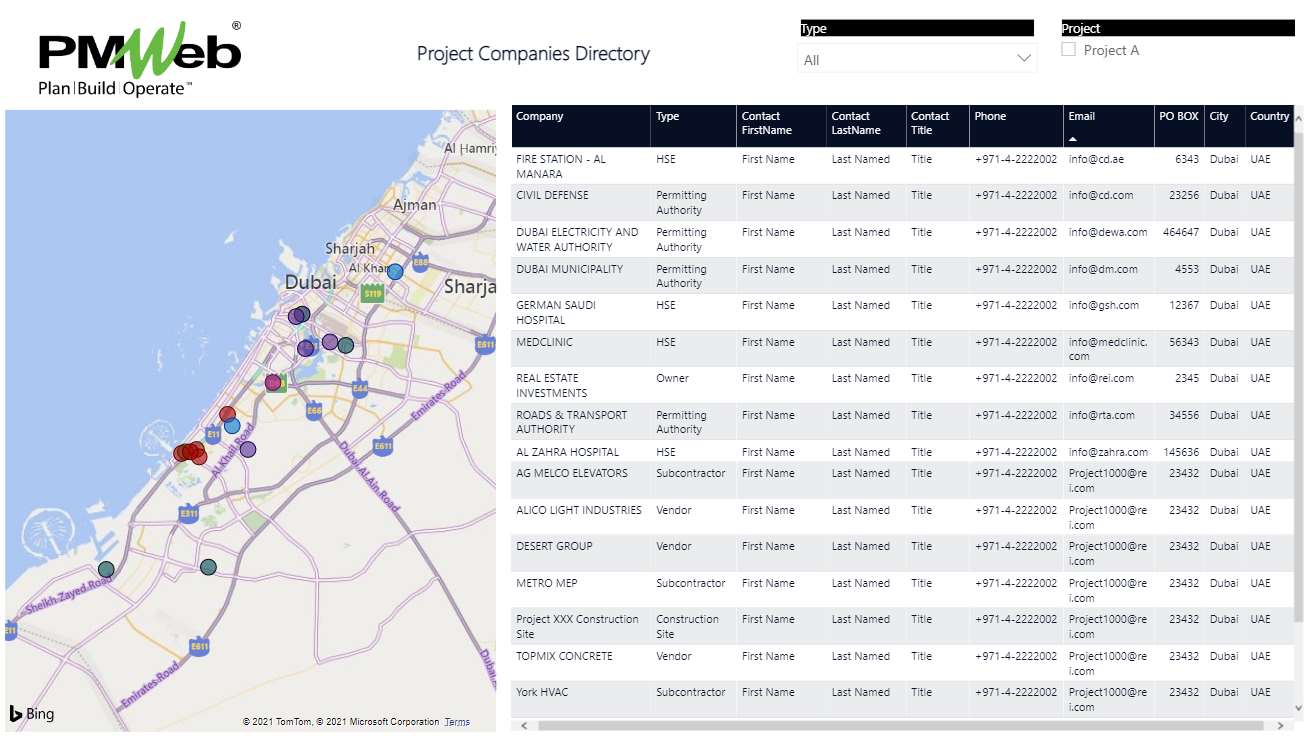
Requirement #2: Having Clarity on What Projects the Organization Wants to Monitor, Evaluate, and Report On
PMWeb allows the organization to capture all its projects regardless of whether they were being executed, planned, completed, canceled, or on hold. For each project, PMWeb allows the organization to capture all needed details to better describe the project along with the latitude and longitude values needed by GIS solutions for map reporting. In addition, it allows attaching all documents that could be related to the project.
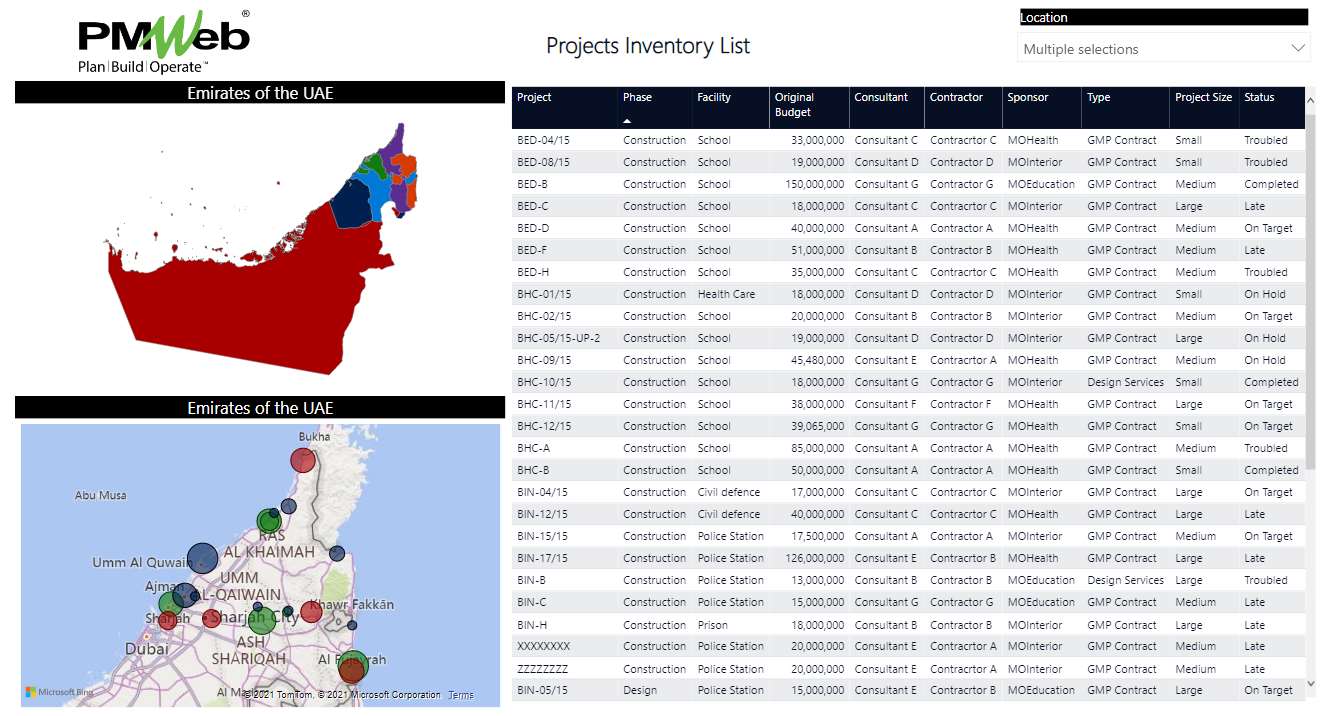
Requirement #3: Ensuring that Projects Documents Needed to Report Performance are Formally Documented
When it comes to reporting the projects’ performance, there are usually a lot of documents that are needed to support the reported progress. Those could include copies of the updated project schedule, critical path report, approved progress invoices, approved change orders, and progress photos among many others. PMWeb document management repository allows creating the folders and subfolders to match the project’s physical document filing system. It is highly recommended to standardize the folder structure across all projects following best practices in setting filing structure in construction projects. PMWeb document management system allows adding attributes to uploaded documents, maintaining document versions, searching, and locating uploaded documents, view and markup PDF and picture file formats.
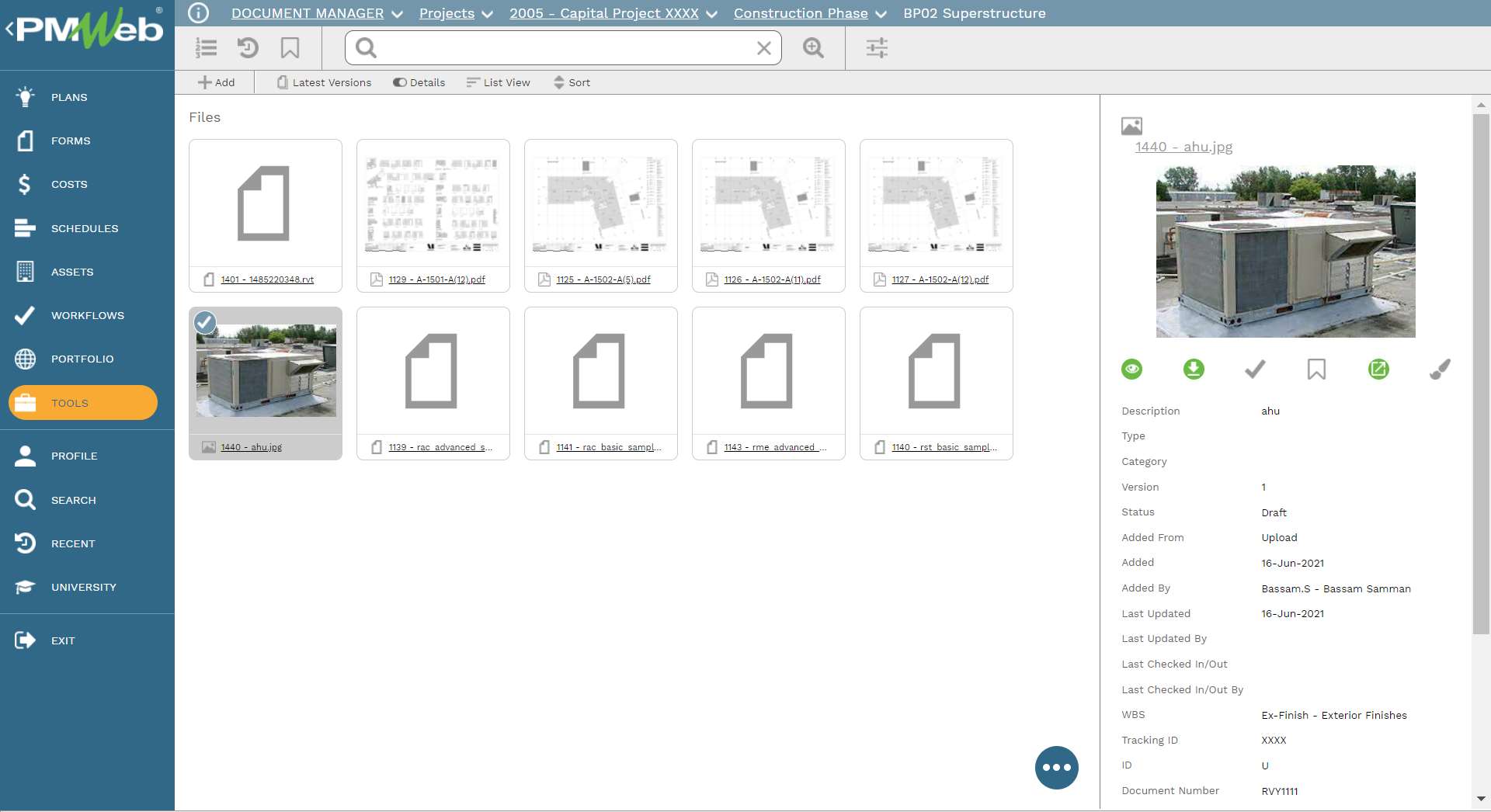
Requirement #4: Enforcing a Standard Process to Report Projects Performance
As detailed above, at this early stage of the PMIS implementation, PMWeb is mainly used to capture the details of the monthly progress report which is designed using the PMWeb custom form builder. The form has the fields and a pre-defined list of values that all project managers must use regardless of which project is being reported. This not only ensures transparency but enforces standardization in performance reporting across the complete projects’ portfolio of the organization.
The monthly progress report attaches all supportive documents that were uploaded into the PMWeb document management repository as explained above. The importance of capturing progress report data using PMWeb is that it helps the organization not only in maintaining the historical data of past performance across their complete projects portfolio but enforcing governance in capturing and reporting this performance data by the authorized project team member.
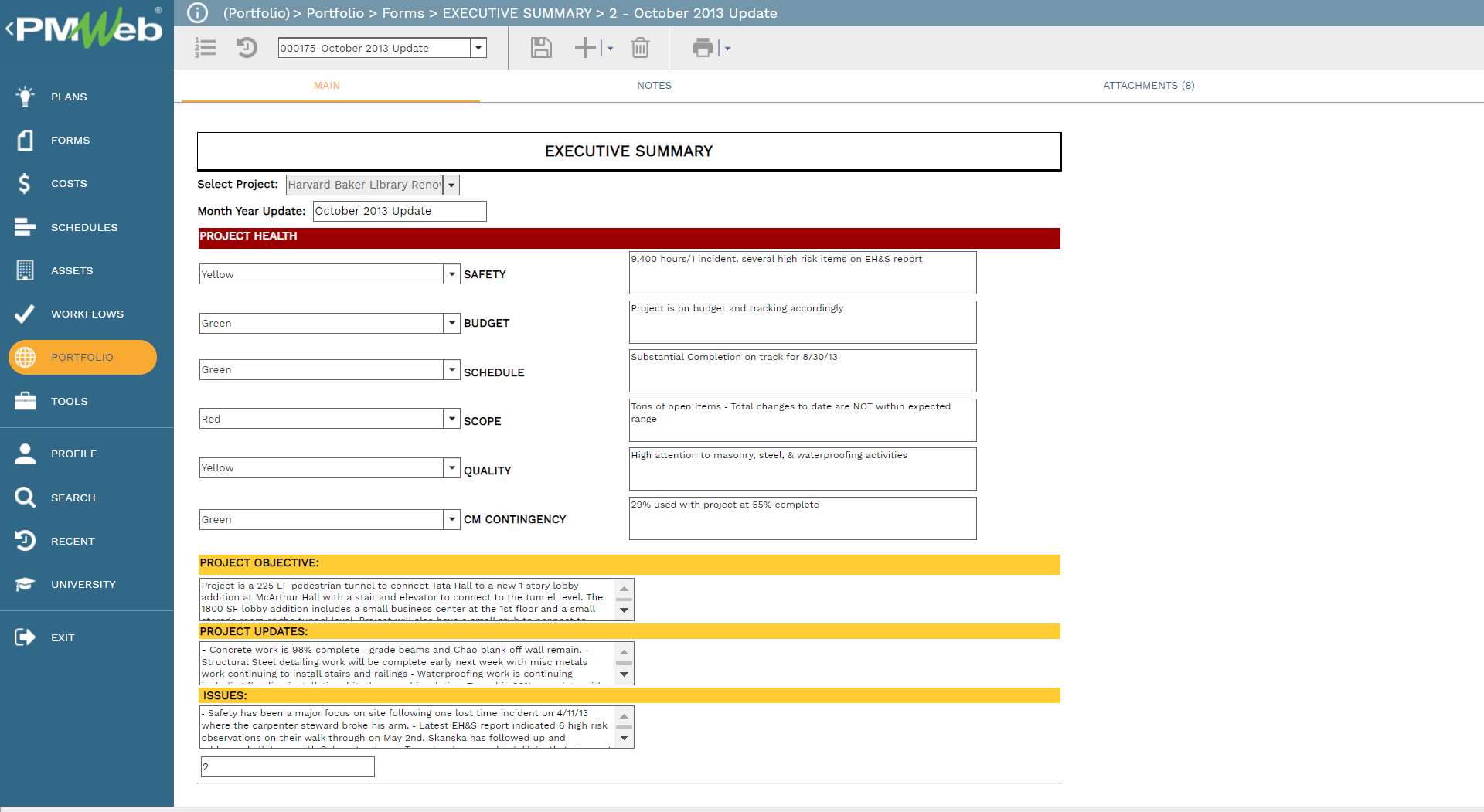
An assigned workflow to the monthly progress report ensures its formal submission by the set procedures. In other words, before the progress report status is set as approved, the reported progress information needs to be formally reviewed by the projects manager, and the head of the projects department, among others. The workflow also needs the fields of the monthly progress report that needs to be completed by different project team members. This requires assigning different access rights for the project team members to complete the different fields of the progress report.
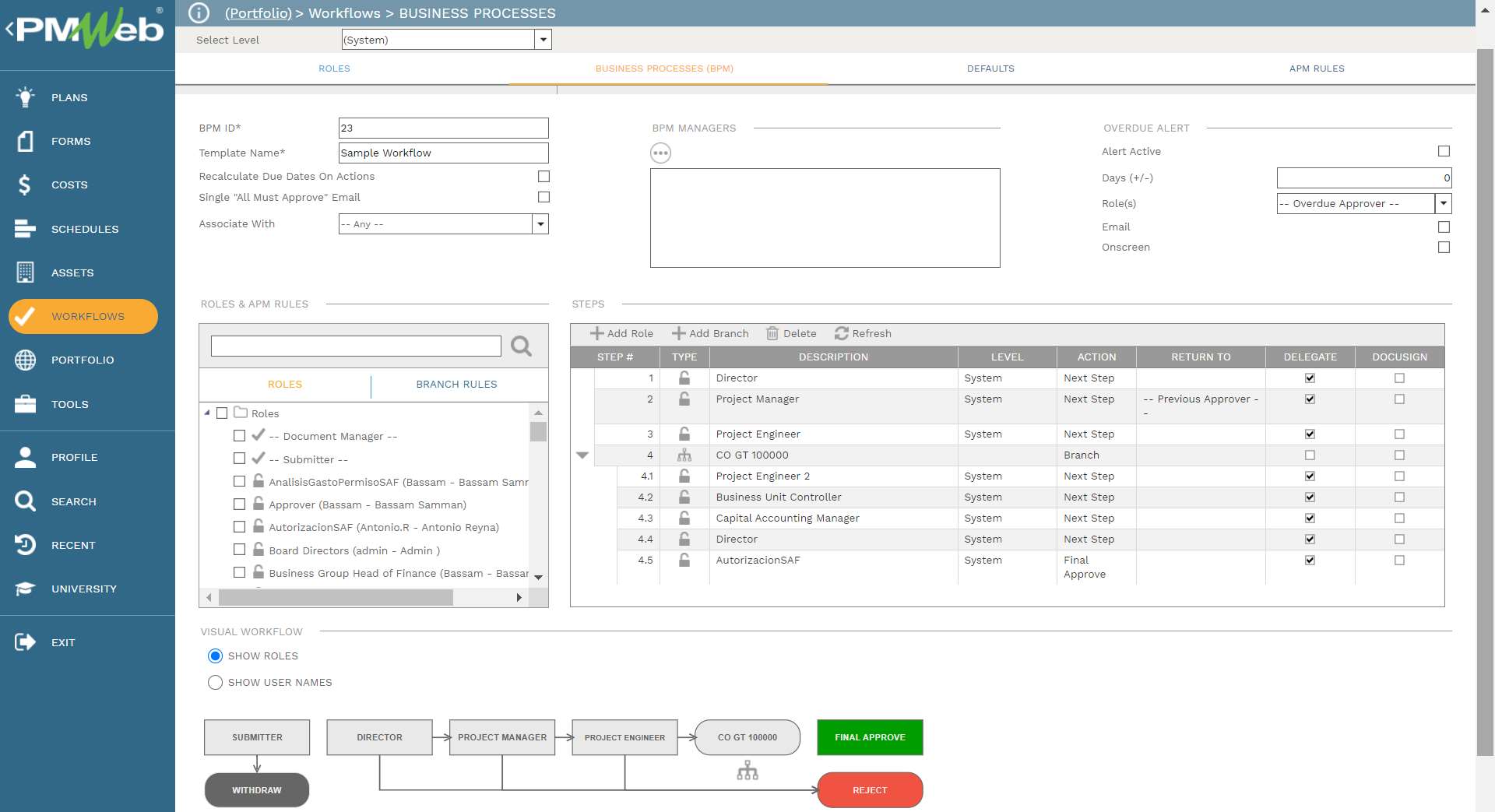
Requirement #5: Ensuring that there is a Formal Process for Raising, Resolving, and Reporting Projects Issues
PMWeb enables the organization to have a real-time web-enabled solution to enable the project team members to raise issues as soon as they occur as well as track their resolution to avoid affecting the project’s objectives. PMWeb custom form builder allows creating the “Issue Resolution” form in the desired form and format to capture the needed details. In addition, A workflow assigned to the form captures the different review and approval steps needed to resolve the issue. The workflow could include conditions to involve the right project team members depending on the issue category which has predefined values.
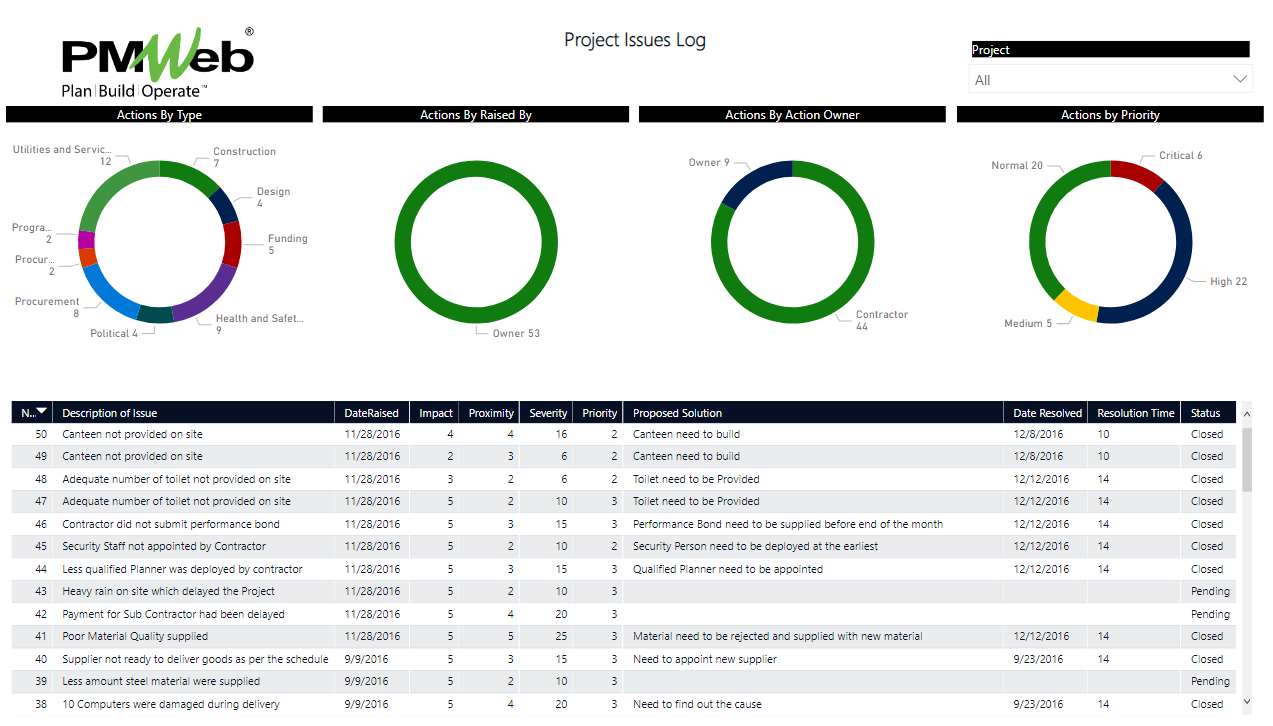
Requirement #6: Capturing the Updated Project Schedule Milestone Dates
Although the monthly progress report designed using PMWeb custom form builder can be designed to include fields for reporting the current dates of the project milestone activities, PMWeb can also import those dates from the updated project schedule. PMWeb schedule link options allow importing project schedule details from either Oracle Primavera P6 or MS Project. Those dates when imported display on the project’s performance dashboard. In addition, using the PMWeb scheduling module, the project manager can maintain copies of all imported schedule updates, view those schedules in PMWeb as well as create and maintain the project schedule in PMWeb instead of importing it from Oracle Primavera P6 or MS Project.
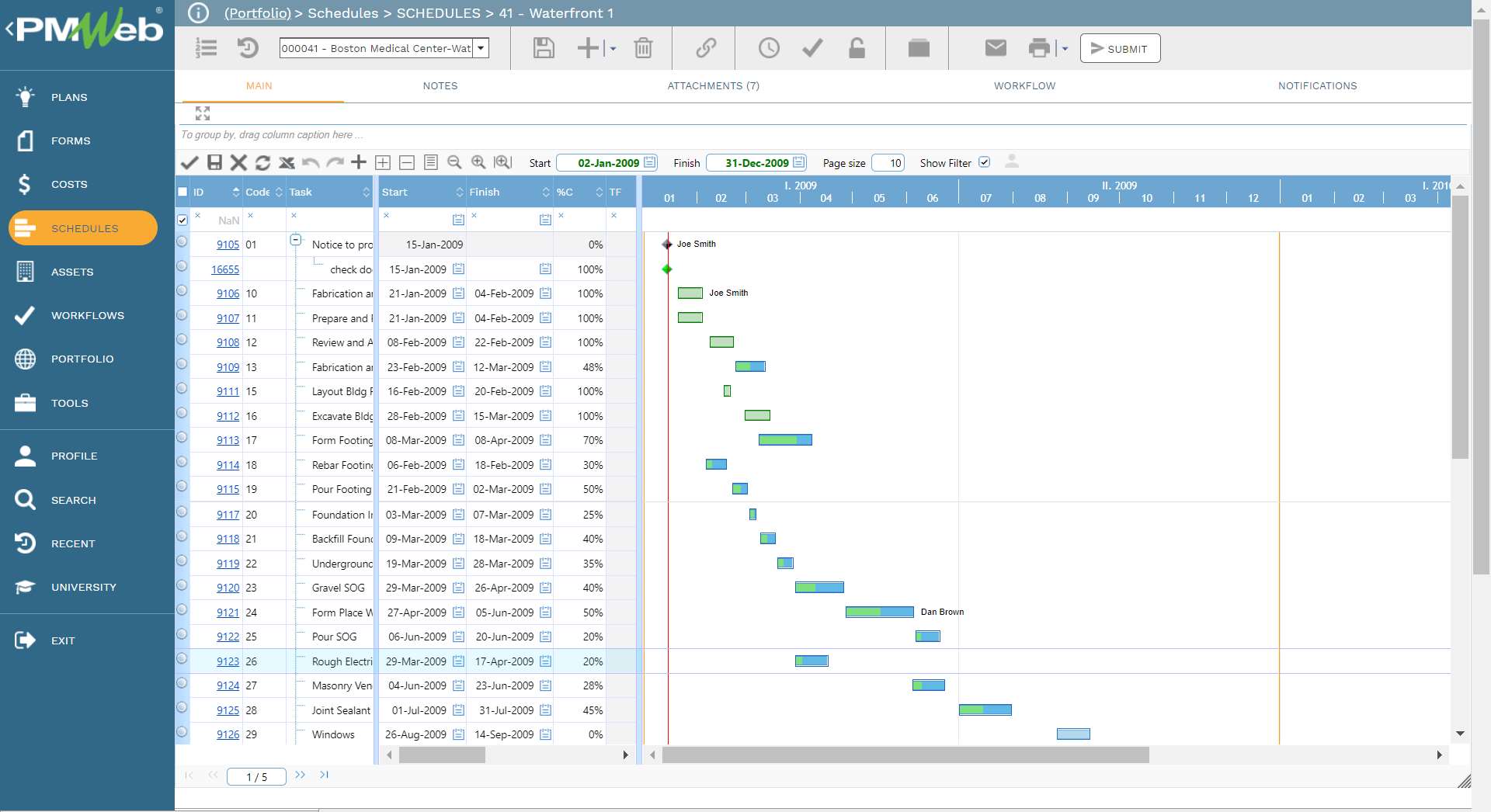
Requirement #7: Standardizing the Monitoring, Evaluating, and Reporting of the Project’s Performance
The data captured in the online progress report will become the basis for producing the monthly progress report which can be designed in any desired format including the display of progress photos that were captured, uploaded, and stored on the PMWeb document management repository and then attached to the progress report. The progress report also extracts data from other PMWeb modules, for example, the Issue Resolution module. In addition to the fact that the progress is available online, the report can be also saved as PDF so it can be emailed or printed. In addition, the same captured project data becomes automatically available for the organization to monitor, evaluate, and report their complete project portfolio.
